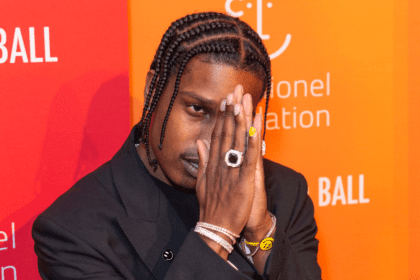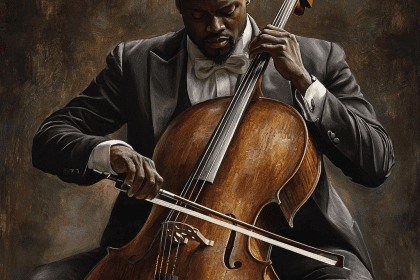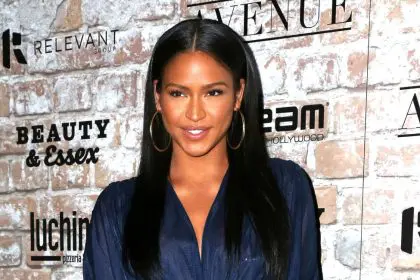Last week, hit maker Pharrell Williams sparked controversy during an interview with Oprah during which he addressed the controversy surrounding the cover for his latest album G I R L. The star was criticized for not including darker-skinned women on the cover when the album was released; but he told Oprah that he believes in “the new black” and explained what that means.
“The new black doesn’t blame other races for our issues,” Pharrell said. “The new black dreams and realizes that it’s not a pigmentation, it’s a mentality. It’s either going to work for you or it’s going to work against you and you’ve got to pick which side you’re gonna be on. You choose to be on.”
He also stated that “I recognize that there are issues. We get judged on our skin.” And added, “I don’t allow that to run my life. I don’t live my life trying to be black. What I do is, I nurture my curiosity and use it. I’m proud to be what I am. So my thing is, the new black is a mentality. You don’t do things because you’re black. You do things because you’re genuinely interested in something. Is there a lot of black inequality? Absolutely! But I’m the main one waving the flag. What do you mean? Don’t find your confidence in a cover. Find your confidence in the mirror.”
The criticism was swift, with Twitter mocking Pharrell’s stance with a #WhatKindOfBlackAreYou hashtag. And it was most certainly warranted. Williams has seemingly decided that systematic and institutional racism can be overcome by the power of positive thinking. That’s quite insulting to a people that grapple with the realities of being black in America on a daily basis.
The issue isn’t so much personal prejudice, it’s not just that black people “get judged on our skin” or that a black person shouldn’t allow racism “to run [his/her] life.” It’s that systematic racism does run our lives and we have no say in the matter. acknowledging that while declaring that black people have to stop “blaming other races for our issues” rings hollow. It’s pretty difficult for the average African American student to achieve at a high level, for example, when most educational institutions that they’ve attended have been underfunded or undermanned. A recent study by Ary Spatig-Amerikaner from the Center for American Progress found that school districts spend $733 more on white students at 90 percent white schools than on students of color that attend schools where the student body is 90 percent nonwhite.
The black family and black community must also face the harsh realities of a prison system that sustains itself on incarcerating black people. The NAACP reports that African Americans are incarcerated at nearly six times the rate of whites and that African Americans are sent to prison for drug offenses at 10 times the rate of whites, despite the fact that whites reportedly use drugs five times as much as African Americans. One has to wonder who should be blamed for that glaring disparity.
Positive thinking isn’t enough to overcome systematic and generational obstacles, it only ensures that a precious few will be able to rise above them.
Also last week, video footage surfaced of famed astrophysicist Neil DeGrasse Tyson speaking about race in America. At a panel discussion for Inquiry For America, a member of the audience referenced comments made by former Treasury Secretary and Harvard University President Lawrence Summers, who suggested that genetic differences could be the reason for there being fewer women in science. Dr. Tyson responded by examining the realities of institutional biases that hinder women and black people in American society.
“I’ve never been female. But I have been black my whole life,” he stated. “There are many similar social issues related to access to equal opportunity that we find in the black community as well as the community of women that we find in a white male-dominated society. I’ve known that I wanted to do astrophysics since I was 9 years old … so I got to see how the world around me reacted to my expression of these ambitions. The fact that I wanted to be a scientist and astrophysicist was hands-down the path of most resistance through the forces … of society. Any time I expressed this interest, teachers said ‘Don’t you want to be an athlete?’ I wanted to become something that was outside the paradigms of expectations of the people in power. Fortunately, my depth of interest was so deep and so fueled and rich that everyone of these curve balls that [were] thrown, I just reached for more fuel and kept going. Now here I am, one of the most visible scientists in the land and I want to look behind me and I say ‘where are the others who might have been this?’ And they’re not there. What is the blood on the tracks that I happened to survive and others did not? Simply because of the forces of society that prevent it at every turn.
“My life experience tells me that when you don’t find blacks in the sciences or women in the sciences, I know that these forces are real,” Dr. Tyson added. “And I had to survive them in order to get where I am today. So before we start talking about genetic differences, you have to come up with a system where there’s equal opportunity. Then we can have that conversation.”
















